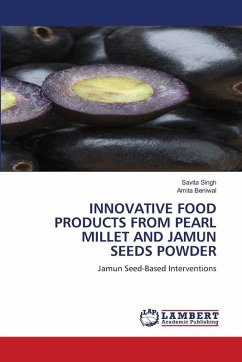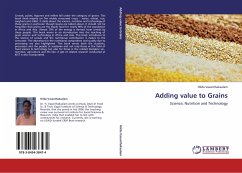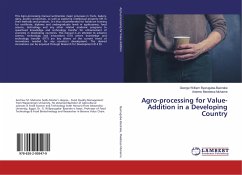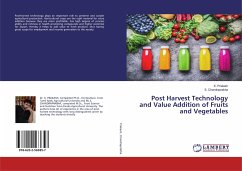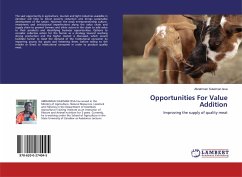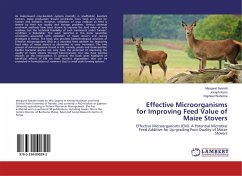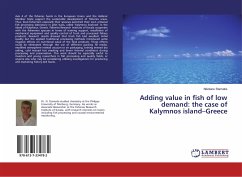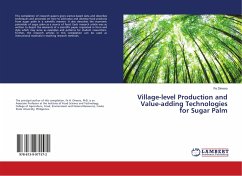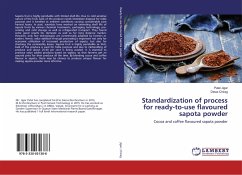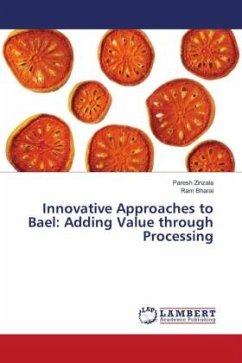
Innovative Approaches to Bael: Adding Value through Processing
Versandkostenfrei!
Versandfertig in 6-10 Tagen
60,99 €
inkl. MwSt.

PAYBACK Punkte
30 °P sammeln!
Bael (Aegle marmelos L.) is an indigenous fruit of India belonging to family Rutaceae. It has great mythological and religious significance in Indian history and culture. Bael is a sub-tropical, deciduous tree and its fruit is globuse with grey or yellowish hard woody shell. Inside shell, there is soft yellow or orange coloured mucilaginous pulp with numerous seeds. Bael fruit is very rich in vitamins, amino acids and minerals as compared to other fruits, and it can contribute significantly to the daily nutrient intake needs of the individual. Bael fruit is the richest source of vitamin B2 (ri...
Bael (Aegle marmelos L.) is an indigenous fruit of India belonging to family Rutaceae. It has great mythological and religious significance in Indian history and culture. Bael is a sub-tropical, deciduous tree and its fruit is globuse with grey or yellowish hard woody shell. Inside shell, there is soft yellow or orange coloured mucilaginous pulp with numerous seeds. Bael fruit is very rich in vitamins, amino acids and minerals as compared to other fruits, and it can contribute significantly to the daily nutrient intake needs of the individual. Bael fruit is the richest source of vitamin B2 (riboflavin), vitamin A and vitamin C. The different parts of bael are used for various therapeutic purposes, such as for treatment of asthma, anaemia, fractures, healing of wounds, swollen joints, high blood pressure, jaundice, diarrhoea, brain typhoid and troubles during pregnancy. The unripe dried fruits are astringent, digestive, stomachic and used to cure diarrhea and dysentery.



